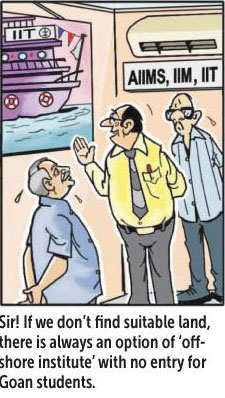Right from the British era India followed an education policy aimed at educating the masses which was refined and redefined by National Policy on Education 1986, modified in 1992 the thrust post 1992 has been on Free and Compulsory Education and achieving universal elementary education. The National Education Policy 2020 is bringing in the required changes in the education system keeping in mind the needs and demands of the 21st century.
The National Education Policy 2020 begins with the declaration that “Education is fundamental for achieving full human potential, developing an equitable and just society, and promoting national development. Providing universal access to quality education is the key to India’s continued ascent, and leadership on the global stage in terms of economic growth, social justice and equality, scientific advancement, national integration, and cultural preservation.
The fundamental principles of the Policy is “ to recognise, identify, and foster the unique capabilities of each student, by sensitising teachers to promote student’s holistic development in both academic and non-academic spheres; Thus giving the highest priority to achieving Foundational Literacy and Numeracy by all students by Grade 3.
It provides flexibility, so that learners have the ability to choose their learning trajectories and programmes, with no hard separations between arts and sciences, between curricular and extra-curricular activities, between vocational and academic streams, etc. Also providing multidisciplinary and a holistic education across the sciences, social sciences, arts, humanities, and sports for a multidisciplinary world in order to ensure the unity and integrity of all knowledge; which would emphasis on conceptual understanding rather than rote learning and learning-for-exams; encourage creativity and critical thinking to encourage logical decision-making and innovation; The Policy encourages extensive use of technology in teaching and learning, removing language barriers, increasing access for divyang students, students gaining capacity to respect the diversity and respect for the local context in all curriculum, pedagogy; Providing for full equity and inclusion as the cornerstone of all educational decisions to ensure that all students are able to thrive in the education system. Providing for synergy in curriculum across all levels of education from early childhood care and education to school education to higher education;
The policy recognises that teachers and faculty as the heart of the learning process – their recruitment, continuous professional development, positive working environments and service conditions are recognised as an essential part of the implementation of NEP 2020.
The policy also ensures a regulatory framework with integrity, transparency, and resource efficiency through audit and public disclosure while encouraging innovation and out-of-the-box ideas through autonomy, good governance, and empowerment. The policy would promote outstanding research as a corequisite for outstanding education and development. With continuous review of progress based on sustained research and regular assessment by educational experts.
The policy principles also points out the need for substantial investment in a strong, vibrant public education system as well as the encouragement and facilitation of true philanthropic private and community participation.
The Principles of the National education policy and vision of the policy are indeed noble and achievable especially because India did have a sound and strong educational system which has been providing very commendable results all these years as evidenced, by the progress and achievements of those who have been educated in India, as Indians have excelled in all the fields of education and technology in which ever country, they have been. The danger of commercialisation and profiteering, looms large in the area of education, especially higher education in India, though in the earlier days of independence the so called missionary education has resulted in the setting up of some quality education institution which has excelled extremely well in the country. That is why the NEP 2020 cautions and cautions strongly that the aims of the policy cannot be achieved without the Government investing money in education at least to a minimum of 6% of the GDP from the present 3%.
The movements of the education department of some States, including Goa, seems to be on this track of disaster. The saddest part of it is that the youth of today have become so gullible to propaganda that they will have neither knowledge nor skill when they come out of Indian Universities. The only way to resurrect the situation for this total anarchy and collapse is for the government to relook at the policy statement and prepare a road map with prioritisation. To start with the governments must commit themselves to an adequate financial outlay and then comes in-service training of teachers and training of future recruits to equip them with necessary skills and knowledge followed by setting up of proper transparent administrative machinery with competent and capable academic leaders who understand education and the impact of the policies on those who join the education system.
